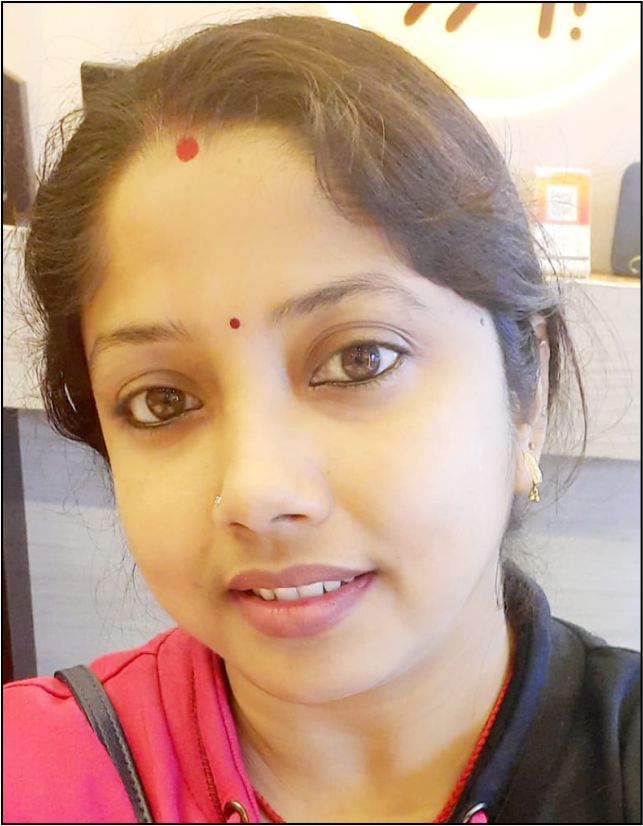 Samvad Vyakhyan Srinkhla – विषय : प्रारंभिक औपनिवेशिक कानूनी दस्तावेज़ों में महिलाओं का इतिहास, वक्ता : डॉ रुचिका शर्मा, Assistant Professor, इतिहास विभाग, माता सुंदरी महिला कॉलेज, दिल्ली विश्वविद्यालय।
Samvad Vyakhyan Srinkhla – विषय : प्रारंभिक औपनिवेशिक कानूनी दस्तावेज़ों में महिलाओं का इतिहास, वक्ता : डॉ रुचिका शर्मा, Assistant Professor, इतिहास विभाग, माता सुंदरी महिला कॉलेज, दिल्ली विश्वविद्यालय।
Date: 23 July, 2024
Dr. Ruchika Sharma is an Assistant Professor of History teaching undergraduate students at the University of Delhi; and has been teaching since 2006. She has done her Honours in History from St. Stephen’s College in 2001 and got her doctorate from Centre for Historical Studies, Jawaharlal Nehru University (JNU) in 2012. She currently teaches at Mata Sundri College for Women, University of Delhi. She has been exploring and publishing on themes like Mixed-race domesticities, Women through Legal history, Nautch women, Ganika (Courtesans), Gender & European travel literature, Historical understanding of literary figures like sakhi/duti/go-betweens, PoSH Laws, Diversity and Inclusion (DEI), etc. She is the recipient of the ‘Nehru Memorial Museum and Library Book Writing Fellowship’ in 2019. She has recently written a book that looks at the Wills left by the British men in 18th century India mentioning their Indian bibis (concubines) and families they had with them. The book mentions a number of such middle and lower-middle class British men in India during the early colonial period who were a part of these interracial intimacies. The book is called Concubinage, Race and Law in Early Colonial Bengal. Bequeathing Intimacy, Servicing the Empire.
 Yoga for Women’s Health
Yoga for Women’s Health
Speaker: Dr. Lakshmi Nishitha J, BNYS, M.Sc ( yoga), PGC (Acu) Scientist-B
Department of Integrative Medicine, National Institute of Mental Health and Neurosciences, Bengaluru
Yoga Demonstration by: Ms. Harshita J, Post graduate scholar in Yoga Therapy
Department of Integrative Medicine, National Institute of Mental Health and Neurosciences
Bengaluru
Date: 21 June, 2024
Webinar Abstract: Yoga is an ancient science of life that has it roots from India. It is holistic health science that aims at well-being at physical, mental, emotional and spiritual planes of being.
Yoga has emerged as a multifaceted practice offering holistic benefits for women’s health during different life stages, such as menarche, pregnancy, and menopause, promote physical health, mental health and well-being. yoga serves as a powerful tool for stress management, a prevalent issue among women due to societal roles and responsibilities. Through pranayama (controlled breathing), deep relaxation and meditative techniques, yoga helps alleviate stress, promoting emotional balance and resilience.
Moreover, yoga fosters physical health by enhancing flexibility, strength, and balance. Specific yoga poses target areas of concern for women, such as the pelvic region, aiding in alleviating menstrual discomfort and promoting reproductive health. Additionally, certain postures can mitigate symptoms associated with menopause, such as hot flashes and mood swings.
Beyond the physical realm, rich yoga philosophy fosters awareness about self, provides insights on handling our mind and deal with daily stressors. Yoga nurtures mental and emotional health. Regular practice cultivates self-awareness, empowering women to have better control and coordination between their mind- body complex. This self-awareness can be especially beneficial during transitional phases of like pregnancy and menopause; and also to balance the roles at work and home.
In conclusion, yoga emerges as a comprehensive approach to promoting women’s health, addressing physical, mental, and emotional aspects. Its integrative nature, encompassing physical body movement, controlled breathing, and mindfulness, makes it a valuable tool for enhancing overall well-being and quality of life for women across different stages of life.
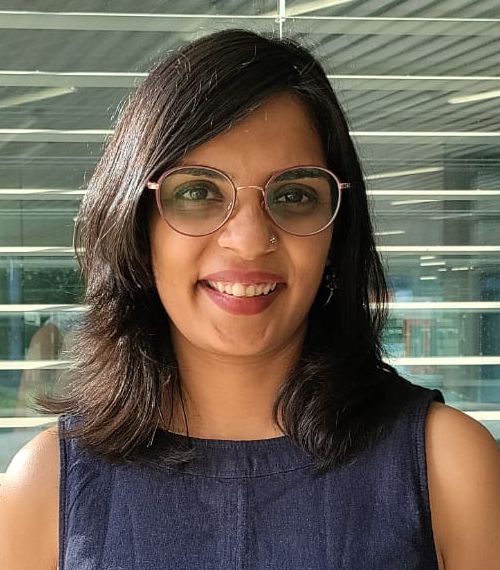
Azadi Ka Amrit Mahotsav Seminar series
Fashioning the ‘Cosmopolitan Diva’: Grooming and Etiquette Training in Contemporary Delhi
Speaker: Dr. Suchismita Chattopadhyay, Consultant, Oxford Policy Management, and Visiting Faculty, Krea University
Date: 16 May, 2023
Webinar Abstract: The new economic reforms of 1991 led to the emergence of a consumption-driven economy and a booming service industry, producing new aspirations and sensibilities. Delhi’s new ‘world-class’ spaces of employment, pleasure and consumption demand new modes of belonging. At the level of the workforce in the service industry, belonging is mediated by proficiency in English and soft skills. Similarly, the clients also must demonstrate a knowledge of taste and distinction that goes beyond possessing the monetary means to consume. However, neither of these dispositions and skills are naturally given. Grooming institutions have emerged as sites that teach clients new lifestyle practices and how to be ‘professional’. They range from spoken English and personality development classes, finishing schools and image management. I argue that the grooming schools in Delhi are breaking down the seemingly global-urban lifestyle into teachable components of language, attitude, deportment, etiquette and appearance. Furthermore, they have emerged as sites that not only fashion the urbane subject but also propose the discourse of that urbanity. This presentation is an ethnography of one such finishing school in Delhi that trains upper-class women in body language, etiquette and lifestyle practices. Through its pedagogy and classes, I examine how the “cosmopolitan diva” is fashioned. This paper positions the women and their desires alongside the changing visuals cape of the city. I highlight pleasure and conspicuous spending, where etiquette by itself, through the lessons become an aspirational and desirable phenomenon. Moreover, I also ground the finishing school as a space that consolidates class and caste identities.
Click to view: https://youtube.com/live/zyflRWTSOXA

Samwad Vyakhyan Srinkhla – पिछड़ी महिलाएँ या पिछड़ों की महिलाएँ?: सन्दर्भ ओबीसी कैटेगरी/श्रेणी
Speaker: Dr. Asha Singh, Assistant Professor, Centre for Studies in Social Sciences, Calcutta (CSSSC), Kolkata
Date: 28 April 2023
Abstract: इस पेपर का उद्देश्य सरकारी श्रेणी के रूप में अन्य पिछड़ा वर्ग (ओबीसी) की यात्रा को समझना और इसकी सीमाओं व संभावनाओं को रेखांकित करना है। ओबीसी श्रेणी को पिछड़ी जाति की महिलाओं के नज़रिए से समझने की समुचित कोशिश नहीं हुई है। पिछड़े वर्गों की पहचान और सूचीबद्ध करने की प्रक्रिया का विश्लेषण करते हुए यह पेपर अंतर्निहित समाजशास्त्रीय मान्यताओं और विरोधाभासों की तरफ़ इशारा करेगा। ‘पिछड़ा‘ शब्द का महिलाओं से क्या लेना–देना है अथवा महिलाओं को ‘पिछड़े’ की श्रेणी में समझने की क्या क़वायद हुई है (या नहीं हुई है), पर प्रकाश डालना इस पेपर का केंद्रीय लक्ष्य है।
डॉ. आशा सिंह सेंटर फॉर स्टडीज इन सोशल साइंसेज, कलकत्ता (CSSSC) में जेंडर स्टडीज़ की असिस्टेंट प्रोफेसर हैं। उन्होंने अंबेडकर विश्वविद्यालय दिल्ली (AUD), एमिटी विश्वविद्यालय नोएडा और महात्मा गांधी अंतरराष्ट्रीय हिंदी विश्वविद्यालय के कोलकाता केंद्र में भी पढ़ाया है। डॉ आशा सिंह ने कई साल हिंदी पत्रकारिता जगत में गुज़ारे हैं , बतौर रिपोर्टर नईदुनिया (नवदुनिया), भोपाल और सहायक उप-संपादक के रूप में लोकमत समाचार, महाराष्ट्र में कार्य किया है। उन्होंने टाटा इंस्टीट्यूट ऑफ सोशल साइंसेज (TISS), मुंबई/बॉम्बे से पीएचडी की डिग्री हासिल की है। उनका शोधकार्य भोजपुरी लोकगीतों में जेंडर, जाति और पलायन के सवालों पर केंद्रित है। फ़िलहाल वह भोजपुरी भाषा के समाजशास्त्र, उसके संस्थागत इतिहास और उससे संबंधित सामाजिक परिवर्तन की पड़ताल कर रही हैं। साथ ही ओबीसी (OBC) महिलाओं के सवाल पर भी उनका शोध जारी है। उनके शोधपरक आलेख ईपीडब्ल्यू (EPW), सोशियोलॉजिकल बुलेटिन, सेज़, रटलेज और प्रबुद्ध जर्नल ऑफ सोशल इक्वेलिटी) में प्रकाशित हुए हैं। एक द्विभाषी शोधकर्ता के रूप में उन्होंने हिंदुस्तान टाइम्स, राउंड टेबल इंडिया और सावरी जैसे लोकप्रिय मंचों के लिए भी लिखा है।

Samwad Vyakhyan Srinkhla – ‘भारत की क्रांतिकारी आदिवासी औरतें’ (बिरसा मुंडा की जयंती के विशेष उपलक्ष्य पर)
वक्ता : डॉ. वासवी किडो
Date : 15-11-2022
डॉ. वासवी किड़ो झारखंड की सुपरिचित आदिवासी साहित्यकार व सामाजिक कार्यकर्ता हैं। डॉ. किड़ो का जन्म रांची (झारखंड) में हुआ। इन्होंने बतौर पत्रकार के रूप में ‘न्यू मेसेज’ पाक्षिक पत्रिका से शुरूआत कर राष्ट्रीय दैनिक ‘नवभारत टाइम्स’, ‘जनसत्ता’ और ‘प्रभात खबर’ में लगभग 17 साल तक काम किया है। इन्होंने झारखंड में अनेक सामाजिक आंदोलनों में हिस्सा लिया और कइयों का नेतृत्व भी किया है। डॉ. किड़ो वर्ष 2010 से लेकर वर्ष 2013 तक झाड़खंड राज्य महिला आयोग की सदस्य भी रह चुकी हैं।
डॉ. वासवी किड़ो को इनके कार्यों के लिए कई प्रसिद्ध सम्मानों से नवाजा जा चुका है। जिनमें ‘चमेली देवी जैन पुरस्कार’, ‘सरोजनी नायडू पुरस्कार’ और ‘शंकर गुहा नियोगी पुरस्कार’ इनके पत्रकारिता में उल्लेखनीय योगदान के लिए दिया गया। इसके अलावा इन्हें ‘स्त्री शक्ति सम्मान’, ‘प्रेरणा स्त्रोत सम्मान’ और वर्ष 2008-2009 में ‘झाड़खंड रत्न’ सम्मान से भी सम्मानित किया जा चुका है।
डॉ. वासवी किड़ो ने अनेक देशों का दौरा कर आदिवासी सवालों और आदिवासी महिलाओं के मुद्दे को उठाया। इन्होंने वर्ष 2011 में आई.भी.एल.पी. कार्यक्रम के तहत अमेरिकी सरकार के आमंत्रण पर वाशिंगटन डीसी, फलोरिडा, सिएटल और इंडियानापोलिस का दौरा किया। इस दौरान इन्होंने अमेरिका के नेटिभ इंडियन यानी आदिवासी इलाकों का दौरा भी किया तथा सिएटल में आदिवासी जनों के टोटेम खूंटे का अवलोकन किया।
Click to view: https://youtu.be/eUp4bVKT23E
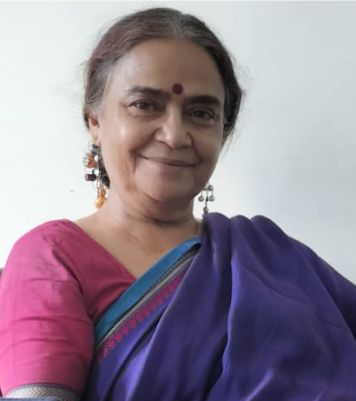
Azadi Ka Amrit Mahotsav
Foregrounding Courtesan as Political Subject in Feminist Historiography
Date: 28-10-2022
Speaker: Dr. Lata Singh, Centre for Women’s Studies, Jawaharlal Nehru University
Webinar Abstract: The voices of marginal women have remained invisibilised for long in history. Recently some attempts have been made to bring them to the forefront. Nevertheless, significant sections of women’s history of those who do not lead ‘conventional’ sexual lives and are not so called ‘respectable’ mothers or wives, the quintessential inspirational figures in the nationalist discourse, still remains in dark. One such category are the courtesans, women belonging to the traditional singing and dancing community. Nationalist discourses have negated or erased women’s creative aspect by putting them out of the framework of the ‘respectable’ nation. Some recent scholarship works foregrounds courtesans as creative subjects though they are seldom regarded as political subjects in their own right. There is historical evidence of courtesans playing significant political roles.In this presentation an attempt will be made to rupture the dominant ‘respectable’ middle class nationalist discourse and critically engage with courtesan’s troubled relationship with the nation in the making.
Click to view: https://youtu.be/WTaN5vcsWBg
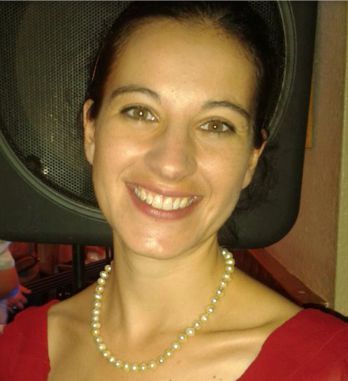
Azadi Ka Amrit Mahotsav
Reflections on Indian Independence and Nation Building through the Lives of her First Generation of Parliamentary/Political Women
Date: 29-09-2022
Speaker: Dr. Annie Devenish, Lecturer, History Department, University of the Witwatersrand, Johannesburg, South Africa
Webinar Abstract: ‘Does man make the age, or the age make the man?’ asks well-known Indian nationalist, socialist and feminist Kamaladevi Chattopadhyay at the start of her autobiography. Of her own life and that of her generation, Chattopadhyay could just as easily be asking ‘Does the woman make the age, or the age make the woman?’, to which her autobiography was to answer that they make each other. Chattopadhyay’s life story like that of her contemporaries – as part of a generation political and social justice activists whose careers straddle the coming of independence in India – was deeply entangled within with the anti-colonial movement and the nation building project. In my book Debating Women’s Citizenship in India 1930–1960, I documented and explored the meaning of independence for this generation and how they conceptualised the relationship between citizenship, equality and gender justice and the various spheres in which the meaning and application of this citizenship was broadened and narrowed, renegotiated, and pursued. In this paper I return to the rich life stories of this generation, to explore the way in which Indian independence and nation building can be reflected and refracted through the lives of this first generation of Parliamentary/political women. Drawing on these autobiographical and biographical accounts, I equally reflect on the value of life histories as a means for a gendered narration and interrogation of nationalist history.
Click to view: https://youtu.be/Xq5TMIzX2Z4
Azadi Ka Amrit Mahotsav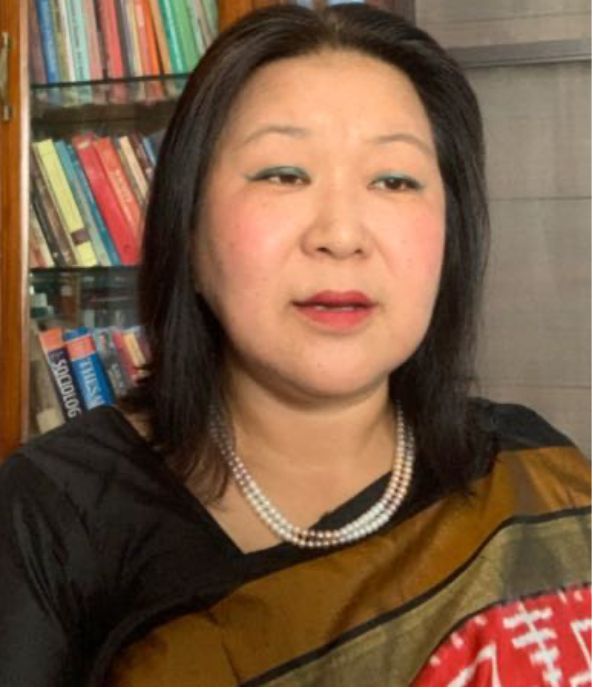
Untold Stories of Trafficked Survivors and Sex Workers in Manipur
Speaker: Prof. Ajailiu Niumai is C.V. Raman Fellow and Head, Centre for the Study of Social Exclusion and Inclusive Policy, University of Hyderabad, Telangana
Date: 25 August, 2022
Webinar Abstract: Manipur has emerged as an origin and transit point for human trafficking. This presentation is based on an ongoing intersectional study of the linkage between commercial sex work and human trafficking in Manipur. Drawing on the narratives of survivors, government officials, and social workers, the study demonstrates that the processes of neo-liberalism and globalization contribute to human trafficking. The presentation employs hitherto silenced and/or absent narratives of trafficked survivors to highlight the intersectionalities underpinning women sex-workers experiences in Manipur. The study employs a mixed method approach with a special focus on purposive sampling, individual interviews and case studies. The limits of the Immoral Traffic (Prevention) Act, 1956 are underlined and the need for a critical review of the Act is emphasised.
Click to view: https://youtu.be/Fod5YG3yrqA
Azadi Ka Amrit Mahotsav
Sports for Persons with Disabilities in India: The Story So Far and the Way Forward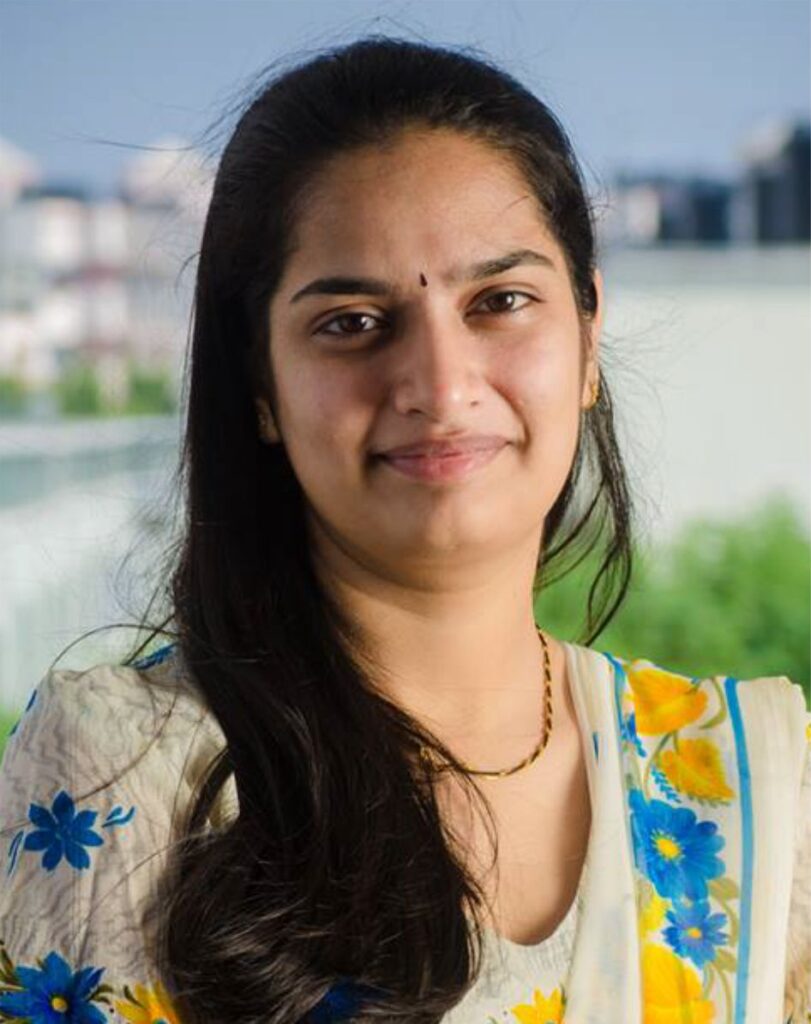 Speaker: Dr.SriPadmini Chennapragada, Founder Director, Adapted Sports India Foundation (ASIF)
Speaker: Dr.SriPadmini Chennapragada, Founder Director, Adapted Sports India Foundation (ASIF)
Date: 29 July, 2022
Webinar Abstract: Since the London 2012 Olympic and Paralympic Games, Indian print and electronic media have increased their coverage of sports for persons with disabilities. This growth can be attributed to many factors and one of the most important of them is the passage of the Rights of Persons with Disabilities (RPwD) Act, 2016. Within the Act, Section 30 focuses on sports, culture and recreation. Despite an increase in funding from the Central government, very little support exists for citizens at the grassroots to pursue sports. Within higher social sciences and academic disciplines that study the intersectionality of disability rights with other aspects of life, there is scarce understanding of how much sports can impact one’s everyday life. The aim of this presentation is to provide a comprehensive overview of what opportunities exist for disability sport in India and abroad. The pathways that exist, barriers and challenges that prevent equitable access for all citizens and potential areas of intersectional work that social scientists can pursue.
Click to view: https://youtu.be/2PMz8wvZrVw
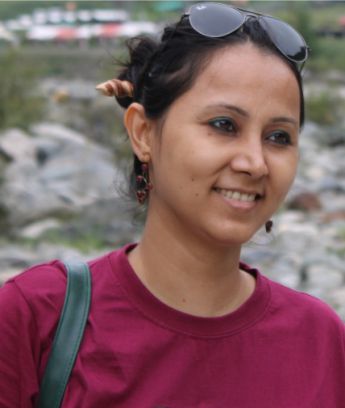 Azadi Ka Amrit Mahotsav
Azadi Ka Amrit Mahotsav
Situating Assamese Women and their roles in India’s Freedom Struggle
Speaker: Dr. Simashree Bora, Assistant Professor, Department of Sociology, Cotton University, Guwahati
Date: 30 June, 2022
Webinar Abstract: For long history has obfuscated the role of women in India’s freedom struggle. Specially, women’s role in the struggle from North east India is not given its due in the nationalist narrative. Women from this region, their roles, participation and contributions have often gone unnoticed and seldom form collective memory of India’s freedom movement. This talk will try to problematize these aspects while attempting a closer look at the seminal roles played by women and their mobilization during freedom struggle in Assam. The talk is divided into two sections; first, a discussion on women freedom fighters and martyr, and women’s political activities during the freedom struggle. Secondly, it will discuss the absence of historical narratives of Assamese women from the mainstream feminist writings and literature.
click to view: https://www.youtube.com/watch?v=SUfojTcxlxI
International Yoga Day
Women’s Well-being and Yoga
Speaker: Dr. Kanchan Chowdhury, Assistant Professor, Department of Swasthavritta and Yoga, Faculty of Ayurveda, Institute of Medical Sciences, Banaras Hindu University, Varanasi
Yoga Demonstration by: Dr. Jayant Nagar (PG Scholar III), Dept. of Swasthavritta and Yoga, Faculty of Ayurveda, Institute of Medical Sciences, Banaras Hindu University, Varanasi
Date: 21 June, 2022
Webinar Abstract: Empowering women, particularly in the context of health, not only contributes to improving the quality of their lives but also enhances their capacities to participate fully across all sectors of nation building. Yoga is a science for the integrated, holistic development of the physical, mental and spiritual aspects of human life. The importance of yoga is now recognized internationally but its role in enhancing women’s well-being is still not well recognized. Yoga can help women to not only achieve a better health status but also to lead overall successful and fulfilling lives.
click to view: https://youtu.be/cnOrsutzYXo
 Azadi Ka Amrit Mahotsav
Azadi Ka Amrit Mahotsav
संवाद व्याख्यान
प्राचीन भारत का इतिहास: स्त्री अध्ययन और आंदोलन के संदर्भ में
वक्ता – कुमकुम रॉय
तारीख : 5 मई 2022
कुमकुम रॉय ने जवाहरलाल नेहरू विश्वविद्यालय के इतिहास अध्ययन केंद्र से प्राचीन भारतीय इतिहास में पीएचडी की। उन्होंने उसी केंद्र में कई वर्षों तक अध्यापन किया। उनकी विशेषज्ञता प्राचीन भारतीय इतिहास में है। उनकी रुचि के क्षेत्रों में, राजनीतिक संस्थानों और प्रक्रियाओं का इतिहास और जेंडर के मुद्दे शामिल हैं। द इमरजेंस ऑफ मोनार्की इन नॉर्थ इंडिया, द पावर ऑफ जेंडर एंड जेंडर ऑफ पावर, ए हिस्टॉरिकल डिक्शनरी ऑफ एन्सिएंट इंडिया उनकी प्रमुख किताबें हैं। वे विभिन्न स्तरों पर शिक्षाशास्त्र के मुद्दों में भी रुचि रखती है।
click to view: https://youtu.be/YDkPlqiyDDQ
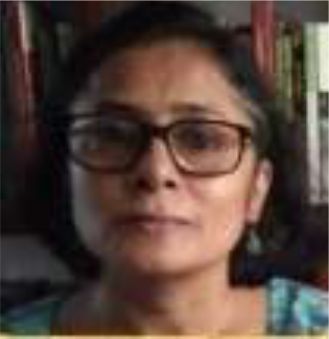 Azadi Ka Amrit Mahotsav
Azadi Ka Amrit Mahotsav
Probing the Field of Dalit Feminism
Speaker: Dr. Smita Patil, Associate Professor, School of Gender and Development Studies, Indira Gandhi National Open University
Date: 22 April 2022
Webinar Abstract: Dalit studies is undergoing major ideological shifts. Critiques to changing forms of caste and gender relations are central to those changes. Dalit feminism is caught between certain inertia and appeasement from the progressive academics. At the same time, progressive academics still are confused whether dalit feminism should be categorized as part of identity politics or radical political intellectual discourse/praxis in the Indian context. Emergence of dalit intellectuals/feminists in the dominant-academic space is often celebrated as revolutionary in nature. It is compared to the earlier dalit-women activist phase that was excluded from the questions of knowledge production. Dalit feminism is being discussed as a field of critical enquiry that is side-lined in the hegemonic academics. Dalit feminism is questioning the geopolitics of brahmanic academic ideas. Such critical inquiry will lead to the larger questions of democratization of knowledge. Return to the past as well as engaging with the contemporary questions are much welcomed within the field of dalit feminism. It is not analysed within the transforming nature of political institutions and politics of knowledge. Questions of social and cultural capital are central to dalit writings. Neoliberal phase of the capitalism also affects the larger academic articulations in general and dalit feminist interventions in particular. At the same time,dalit studies is facing Marxist critique from within and post-modern/Marxist appropriation within and outside the dalit academic discourse .Dalit academic space is also read as ghettoised dalit group in the majoritarian academic imagination. At the same time, invisibility of dalits in reputed educational institutions has added paradoxical turn in the debates on dalit studies. This lecture attempts to rethink about the existing nature of dalit feminism through the aforementioned, broad issues.
Click to view: https://youtu.be/mBkPbrMoEak
Samwad Vyakhyan Srinkhla
विषय : आजादी के 75 साल और दलित स्त्री , वक्ता : अनीता भारती
तारीख : 20 अप्रैल 2022
Click to view: https://youtu.be/hFnUuoEVll0
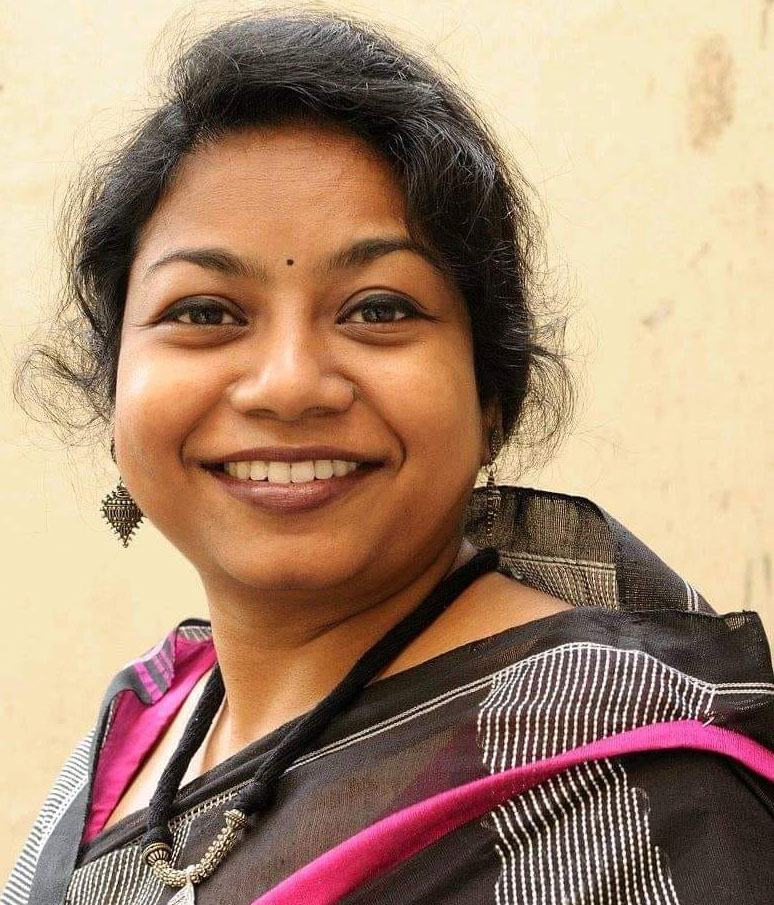
Azadi Ka Amrit Mahotsav
Women Authors and ‘Bengal Renaissance’
Speaker: Prof. Maroona Murmu, Professor, History Department, Jadavpur University, Kolkata
Date: 29 March 2022
Maroona Murmu is currently a Professor of History at Jadavpur University. After her Bachelor’s degree from Presidency College, Kolkata, she received her M.A., MPhil, and Ph.D. degrees from Jawaharlal Nehru University, New Delhi. Her monograph titled Words of Her Own: Women Authors in Nineteenth-Century Bengal was published by OUP. She has written a number of articles on gender studies in colonial India and the caste question in Bengal in journals and edited books. Apart from anti-caste activism, she engages in issues concerning Adivasis and the environment.
Click to view: https://youtu.be/qjq_jA4gDKM
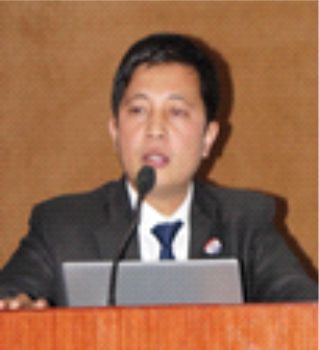 Azadi Ka Amrit Mahotsav
Azadi Ka Amrit Mahotsav
International Mother Language Day (Matribhasha Diwas) Celebration
Roles of Women in the Promotion of Quality Multilingual Learning and Teaching
Speaker: Dr. Lourembem Surjit, Deputy Registrar & Director, College Development Council, Manipur University of Culture
Date: 21st February 2022
Dr. LOUREMBAM SURJIT SINGH is Deputy Registrar & Director, College Development Council at the Manipur University of Culture, Imphal. He has about 14 years of teaching, training, and administrative experience associating with various Universities and Industries in Delhi NCR.
He has completed his Doctorate (Ph.D.) and Master of Philosophy (M.Phil) in Linguistics from the University of Delhi, Delhi, India. Previously he was working as an Associate Professor of English Language, Professional Communication & Soft Skills, and Personality Development at the Department of Applied Science and Humanities at IILM, Lodhi Road, New Delhi, and Greater Noida. He had worked on various international projects and has been published several papers in reputed Peer Review Journals. His area of interest is oral literature and documentation of indigenous languages, translation, and transliteration Studies.
Click to view: https://youtu.be/bwWmQ4KsebI
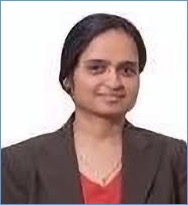 Azadi Ka Amrit Mahotsav
Azadi Ka Amrit Mahotsav
SC/ST, OBC and Equal Opportunity Cell Launch Event – Inaugural Lecture
Critical Dalit Pedagogy
Speaker: Dr. Shailaja Paik, Associate Professor at University of Cincinnati, USA
Date: 21 January 2022
Shailaja Paik is an Associate Professor of History and Affiliate in Women, Gender, and Sexuality Studies at the University of Cincinnati. Her first book Dalit Women’s Education in Modern India: Double Discrimination (London and New York: Routledge, 2014) examines the nexus between caste, class, gender, and state pedagogical practices among Dalit (“Untouchable”) women in urban India. Her second book The Vulgarity of Caste: Dalits, Sexuality, and Humanity (Forthcoming with Stanford University Press) focus on the politics of caste, class, gender, sexuality, and popular culture in modern Maharashtra. She is working on her third monograph “Imposing Decency: Caste Domination and Normative Sexuality in Modern India.” Her research is funded by the American Council of Learned Societies, Stanford Humanities Center, National Endowment for the Humanities-American Institute of Indian Studies, Yale University, Emory University, the Ford Foundation, and the Charles Phelps Taft Research Center, among others. Paik has published several articles on a variety of themes, including the politics of naming, Dalit and African American women, Dalit women’s education, new Dalit womanhood, and caste and normative sexuality in colonial India in prestigious international journals. Her scholarship and research interests are concerned with contributing to and furthering the dialogue in human rights, anti-colonial struggles, transnational women’s history, women-of-color feminisms, and particularly on gendering caste and subaltern history. Paik also co-organized the “Fifth International Conference on the Unfinished Legacy of Dr. Ambedkar” at the New School of Social Research in October 2019.
Click to view: https://youtu.be/VDwRxejJg5A
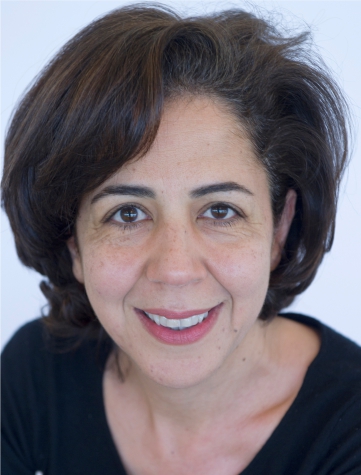
Azadi Ka Amrit Mahotsav
28th J.P.Naik Memorial Lecture
Social Protection at the Crossroads: Towards a better future?
Speaker: Prof. Shahra Razavi, Director, Social Protection Department, ILO
Date: 20 December 2021
Webinar Abstract: Unlike the global financial crisis of 2008, which originated in the under-regulated capitalist financial system and then spilled over into the real economy, the COVID-19 crisis, demonstrates that a crisis that has its origins in the non-market spheres of our economies, is also capable of producing a full-blown livelihood and macroeconomic disaster on a global scale. The presentation will begin with a brief description of the social protection gaps and inequalities that COVID-19 revealed and accentuated, especially from a gender perspective. It will then highlight some of the critical features of the global social protection response to the crisis, both positive and negative. The final part of the presentation asks if we are likely to see a shift to more inclusive economic and social policies? Arguably, the present crisis has assumed such vast dimensions that it has reconfigured policy mindsets and prised open a unique window of opportunity. There are indeed some glimmers of hope in what could constitute the building blocks for a ‘high road’ strategy out of the crisis. As encouraging as these may be, serious hurdles stand in the way of an inclusive global recovery, not least, the risk on the horizon (if not already here) of a harsh fiscal reaction, especially in the developing world. The crisis has provided fertile terrain for thinking about socially progressive alternatives, but trajectories of change will likely defy sweeping generalizations about the direction of ‘progressive’ or ‘regressive’ change, with spaces for progressive change opening up in one area, only to close in another.
Click to view: https://youtu.be/C_MOXWEBrcw
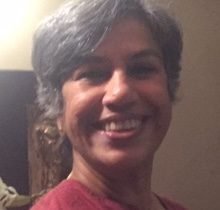
Azadi Ka Amrit Mahotsav
Between Crime and Politics: Women and Children in Mysore’s ‘Quit India’
Speaker: Prof. Janaki Nair
Date: 10-12-2021
Janaki Nair taught Modern History at the Centre for Historical Studies, JNU until she retired in 2020. Her research and teaching interests include labour, legal and urban history, focussed largely on the princely state of Mysore and the Karnataka region. Her publications include Mysore Modern: Rethinking the Region under Princely Rule (2011); The Promise of the Metropolis: Bangalore’s Twentieth Century (2005); Miners and Millhands: Work Culture and Politics in Princely Mysore (1998).
Click to view: https://youtu.be/jsgQSzQhNhA
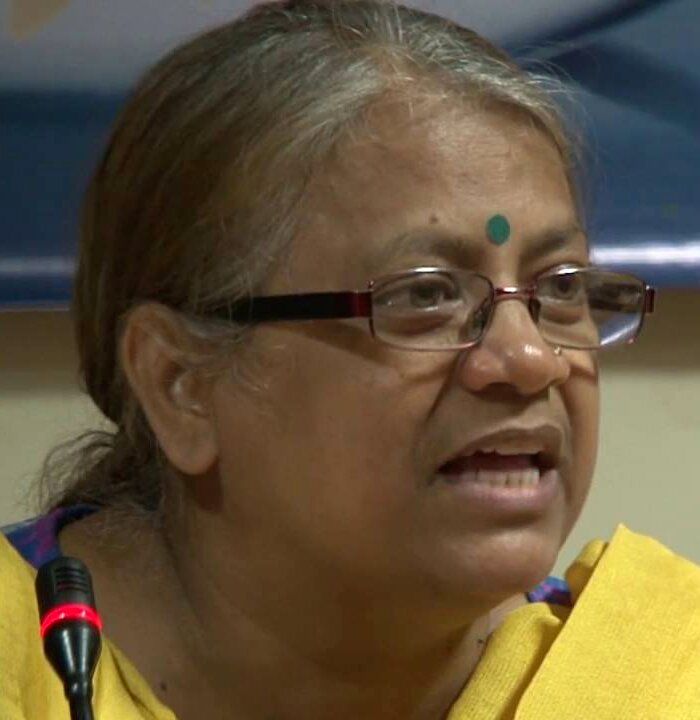
Samwad Vyakhyan Srinkhla
विषय – पंडिता रमाबाई : भय नाही खेद नाही
वक्ता : पूर्वा भारद्वाज
दिनांक : 8 जून 2021
Click to view: https://youtu.be/btfWWLOCz8I
 Distinguished Lecture Series to Celebrate to 40 years of CWDS
Distinguished Lecture Series to Celebrate to 40 years of CWDS
The Institutional Life of Intersectionality
Speaker: Jennifer C. Nash
Date: 29-04-2021
Webinar Abstract: This talk aspires to historicize the present moment, one where intersectionality is celebrated as “part of the gender studies canon,” (Baca Zinn 2012) “the most cutting-edge approach to the politics of gender, race, sexual orientation, and class” (Hancock 2011), and “the most important contribution that women’s studies … has made so far” (McCall 2005). In other words, the talk endeavors to understand a moment when intersectionality, a form of outsider-knowledge, has become institutionalized, conflated with diversity, and deployed by universities (and women’s studies departments and programs) to signal commitments to inclusion and difference. How and why did intersectionality come to institutional power in the early 2000’s, and what institutional needs – in women’s studies, and in the university more broadly – did intersectionality’s emergence serve?
Click to view: https://youtu.be/oJiVJnkRf2w
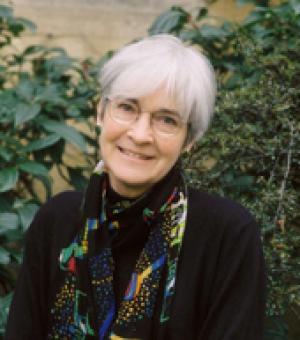 Distinguished Lecture Series to Celebrate to 40 years of CWDS
Distinguished Lecture Series to Celebrate to 40 years of CWDS
Women and Waste: the question of shit-work
Speaker: Barbara Harriss-White
Date: 15 April 2021
Webinar Abstract: In 1989 the sociologist Patricia Jeffery, writing about women and dung in rural UP, defined shit-work as low status, menial work without control over resources. Fast forward to urban TN where dung is but a small subset of a commodified and differentiated public-private waste economy that is structurally informalised. Using case material from fieldwork carried out between 2015-19, we follow gendered work in waste produced in the urban circuits of capital – in production, distribution, consumption, labour (human waste), and social reproduction. We look at materials, tasks, gendered labour relations, incomes and political-social invisibility. This generates resources for reflections about gender, caste, class and small-town shit-work, with questions about public policy.
Click to view: https://youtu.be/77xsrKTI5kw
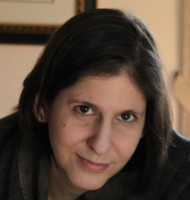 Distinguished Lecture Series to Celebrate 40 years of CWDS
Distinguished Lecture Series to Celebrate 40 years of CWDS
Bodies that Matter: Towards a Feminist Approach to Data Governance
Speaker: Anja Kovacs
Date: 24 February, 2021
Webinar Abstract: Dominant discourses tend to construct data as a resource of some sort, as a thing that is somehow out there and therefore up for grabs. However, in practice the line between physical bodies and virtual bodies is increasingly becoming irrelevant. Data, then, is not so much a resource that is simply out there, but an extension of our bodies, even a part of it. And so the question arises: from data colonialism to seeking consent, how does bringing our, now reconstituted, bodies back into the picture reframe our approach to data governance?
Click to view: https://youtu.be/L_0XQ2pvsFY
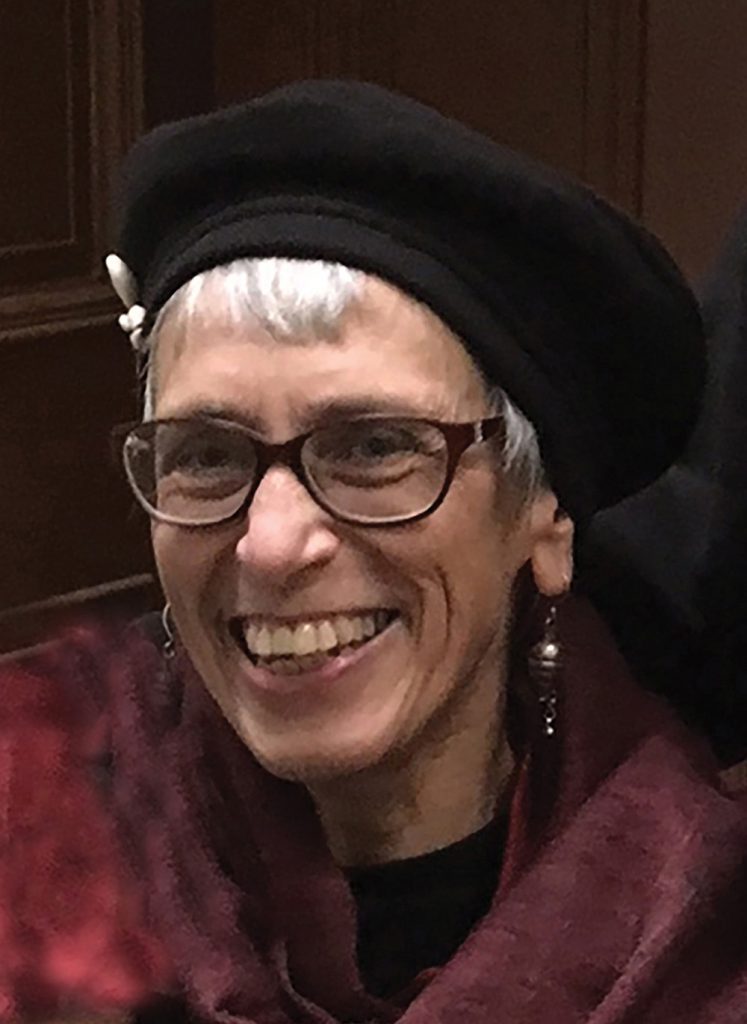 Distinguished Lecture Series to Celebrate 40 years of CWDS
Distinguished Lecture Series to Celebrate 40 years of CWDS
Disability Matters? Nationalist Imaginaries, Economic Crises, and the Impact of a Pandemic
Speaker: Janet Price
Date: 12 January 2021
Webinar Abstract: In this paper, I want to draw upon feminist and disability theories of embodiment, affect and nationalism to offer a preliminary reading of the COVID19 pandemic. Within India and UK recent albeit contrasting experiences of populism have seen individual and national appeals to the ideal of home reinvigorating the turn to securing domestic boundaries, often against misread threats. As the COVID pandemic weaves through populations, cultural imaginaries call upon able and crip nationalisms as a route to conquering ever-rising danger levels – biological, economic, and environmental. With the future marked by anxiety amid moves to control populations, the multiplier effect of COVID19 upon pre-existing inequalities draws concepts of debility, disability and slow death into new configurations. Policies for ‘prevention’ impact with often eugenic effect upon the most vulnerable groups. Resistance and hope have emerged in the face of fear as disability organisations have used the power of art to educate, expose and act-back against the death and violence their community experience.
Click to view: https://www.youtube.com/watch?v=ysLW-ZXftIA
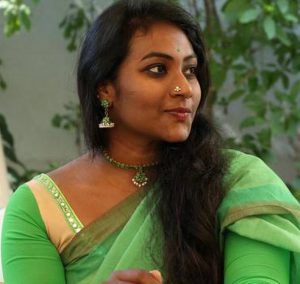 Distinguished Lecture Series to Celebrate 40 years of CWDS
Distinguished Lecture Series to Celebrate 40 years of CWDS
Can there be a progressive feminist Bharathanatyam?: Class, Caste, and Representation
Speaker: Nrithya Pillai
Date: 26 November 2020
Webinar Abstract: Bharathanatyam is mired in a problematic past. Beginning in the 1930s, it was reinvented as a nationalist project at the hands of upper-caste elites, and the contours of that reinvention still have implications and resonances today. The key pillars of the “new” Bharathanatyam included the engineered exclusion of hereditary women practitioners, as well as reimagined, highly Sanskritized, and deeply gendered aesthetics and technique. Moreover, these were couched in the idea of dance as a “spiritual pursuit” for upper-caste (or aspirationally upper-caste) amateur practitioners, unlike the professional practice it was for its original performers. Reimagined Bharathanatyam continues to embody all of these problems. Can there be a progressive feminist Bharathanatyam that can be practiced across the barriers of caste, class, and gender?
Click to view: https://www.youtube.com/watch?v=1XOh8fMkxxE&t=5s
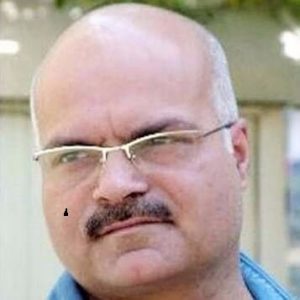 Samwad Vyakhyan Srinkhla – रीतिकालीन नायिका और भारतीय नारीवाद
Samwad Vyakhyan Srinkhla – रीतिकालीन नायिका और भारतीय नारीवाद
वक्ता : अभय कुमार दुबे
Date: 11 November 2020
Click to view: https://www.youtube.com/watch?v=XLyuyMuArDI
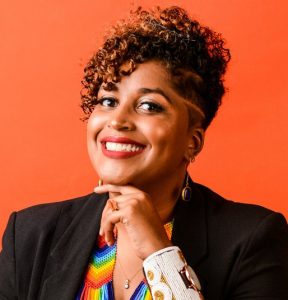
Distinguished Lecture Series to Celebrate 40 years of CWDS
Health PPPs through Global Finance: A Feminist Analysis
Speaker: Crystal Simeoni (Director, NAWI – Afrifem Macroeconomics Collective)
Date: 28 October 2020
Session Brief: The World Bank’s Maximising Finance for Development approach, which has been implemented by the WBG since 2017, builds on previous strategies and represents a systematic and comprehensive effort to promote private sector development. The approach seeks to place the private sector at the heart of development, including in public service provision. In this session, Crystal will give an introduction to what that has meant for Africa using the case of Kenya and Healthcare.
Click to view: https://www.youtube.com/watch?v=K4qOeDZKmhw
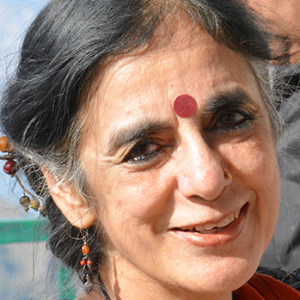 NEP: Rights Equity Inclusion
NEP: Rights Equity Inclusion
Speakers: Prof. Anita Rampal (University of Delhi)
Date: 8 October 2020
Click to view: https://www.youtube.com/watch?v=6b5Hp_YEzeI
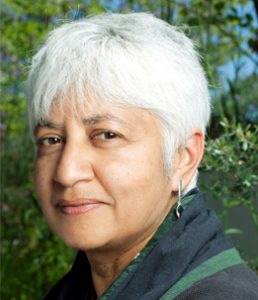 Distinguished Lecture Series to Celebrate to 40 years of CWDS
Distinguished Lecture Series to Celebrate to 40 years of CWDS
Performing Modernity: Women and Music in the Twentieth Century
Speaker: Tejaswini Niranjana (Centre for Cultural Studies, Lingnan University, Hong Kong)
Date: 11 September 2020
Webinar Abstract: The idea of women performers in the twentieth-century public domain in India, whether they were singing or dancing or acting, gave rise to new discursive formations involving the law, morality, and aesthetics. The censorious gaze of colonial authorities denouncing the ‘nautch’, for example, becomes distilled into nationalist austerities. As more and more women perform in public, the conditions under which they can be seen and heard, and are allowed to live, come to be constrained in new ways. It is a complicated and multi-sited story, and I try to draw out some of its nuances by looking at the careers of a few women vocalists, such as Anjanibai Malpekar, Gangubai Hangal, and Gangabai Thakur who either lived in Mumbai or came there to perform.
Click to view: https://youtu.be/DBcE7OBPmCg
Samwad Vyakhyan Srinkhla – कविता-पाठ
कवि: अनामिका, सविता सिंह, अनीता भारती, सुजाता अध्यक्षता : सुधा सिंह
Date: 25 August 2020
Click to view: https://www.youtube.com/watch?v=W8m_hxdGE_k
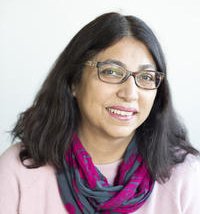 Feminist Everyday Political Economy: Space, Time and Violence
Feminist Everyday Political Economy: Space, Time and Violence
Speaker: Prof. Shirin M. Rai (Department of Politics and International Studies, Director, Warwick Interdisciplinary Research Centre for International Development)
Date: 13 August 2020
Webinar Abstract: As the experience of lockdowns under covid-19 has revealed, women are carrying the majority of the burden of everyday work. This paper seeks to interrogate the concept of the every day – questioning prevalent understandings of every day and asking whether there is an analytical and conceptual utility to be gained in articulating a specifically feminist understanding of it. I argue that a feminist political economy of every day can be developed in ways that push theorisations of social reproduction in new directions. I suggest that one way to do this is through the recognition that social reproduction is the every day alongside a three-part theorisation of space, time, and violence (STV). It is an approach that we feel can play an important role in keeping IPE honest – that is, one that recognises how important gendered structures of everyday power and agency are to the conduct of everyday life within global capitalism.
Click to view: https://youtu.be/lpLFaIHfk8U
As the Pandemic Continues: Reimagining Healthcare
Speakers: Ravi Duggal; Dr. Ritu Priya; Dr. B. Subha Sri; Dr. Dipa Sinha
Date: 24 July 2020
Click to view: https://www.youtube.com/watch?v=V86tAnbHQjk&t=3011s
The Neglected Dimension: Gender in India’s Labour Migration Story
Speakers: Neetha N.; Indrani Mazumdar; Praveena Kodoth; Nitya Rao
Date: 20th June 2020
Click to view: https://www.youtube.com/watch?v=NkpTGexHS1A&t=8s
Workplace Violence in the Health Sector – Experiences, Challenges and Steps Ahead
Speakers: Dr. Sreelekha Nair, Independent Research Scholar; Ms. Sunita Pandit, Nursing Officer, NCT, Delhi; Mr. Jibin TC, United Nurses Association, Mumbai; Ms. Mamta Nayak, ANM from Orissa; Adv. Subhash Chandra, Supreme Court
Date: 18 May 2020
